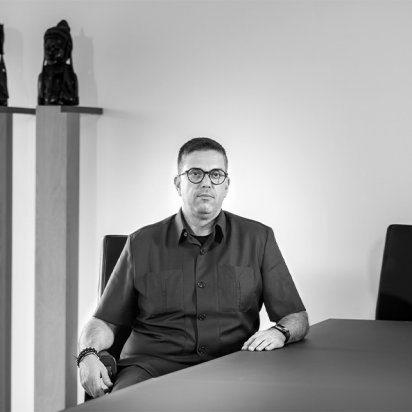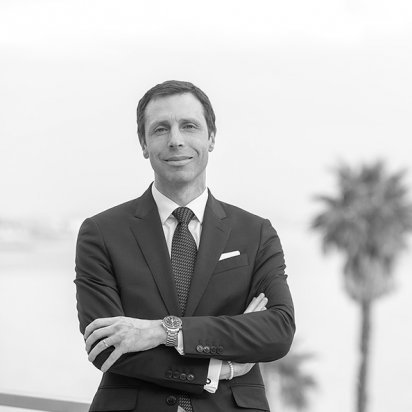
We are the bank that has grown most in lending to the primary sector
Hugo Teles

Positive Angola
Matilde Guebe
The challenges of change and the power of communication
Ricardo Marfim dos Santos
CEO of Tecnovia Angola

The construction sector is, by definition, a sector that throws up major challenges to managers of change. It is a sector highly dependent on the experience factor, with high inequalities in training and cultural diversity. This paradigm is accompanied by a growing coexistence of active generations (baby boomers, X, Y and Z).
Any process of innovation brings with it a resistance to change, supported by the fear of making mistakes and the ever-present doubt "why change if everything is doing fine?”.
Today’s leadership cannot disregard the existence of these three factors (unequal levels of training, cultural diversity and generational shock), so clarity and strength of communication play a key role in its success.
Let us focus on the generational component: as it is not always possible to "lead by example” (a functional way of passing on a message, especially to the baby boomer generation, which has to "see to believe”), the way we communicate should be adapted, as you can’t communicate in the same way when there are such striking differences between employees. Deserving the trust of the people we are dealing with is essential. Basically, this is all about people and the human side almost always helps to foster closeness, which, if controlled, is necessary to compensate the fear of change. The emotional component is extremely important for the success of change, especially when this is corroborated by analytical results.
While the baby boomer generation (and perhaps generation X) needs "seeing is believing”, generations Y and Z like to be put to the test, to try something new. They do not rely on experience, but on mastering technology to prove themselves to older, more experienced employees of other generations. The process of generational integration is accelerated by placing several generations in the same hierarchical line, as a means of enabling a harmonious change through the exchange of ideas and different performance models. Delegating powers and responsibilities with the comfort of the commitment of the entire team, starting from the top of the hierarchy, will require group accountability and gives a greater guarantee of success and validation for change.
Any process of innovation brings with it a resistance to change, supported by the fear of making mistakes and the ever-present doubt "why change if everything is doing fine?”.
Today’s leadership cannot disregard the existence of these three factors (unequal levels of training, cultural diversity and generational shock), so clarity and strength of communication play a key role in its success.
Let us focus on the generational component: as it is not always possible to "lead by example” (a functional way of passing on a message, especially to the baby boomer generation, which has to "see to believe”), the way we communicate should be adapted, as you can’t communicate in the same way when there are such striking differences between employees. Deserving the trust of the people we are dealing with is essential. Basically, this is all about people and the human side almost always helps to foster closeness, which, if controlled, is necessary to compensate the fear of change. The emotional component is extremely important for the success of change, especially when this is corroborated by analytical results.
While the baby boomer generation (and perhaps generation X) needs "seeing is believing”, generations Y and Z like to be put to the test, to try something new. They do not rely on experience, but on mastering technology to prove themselves to older, more experienced employees of other generations. The process of generational integration is accelerated by placing several generations in the same hierarchical line, as a means of enabling a harmonious change through the exchange of ideas and different performance models. Delegating powers and responsibilities with the comfort of the commitment of the entire team, starting from the top of the hierarchy, will require group accountability and gives a greater guarantee of success and validation for change.



